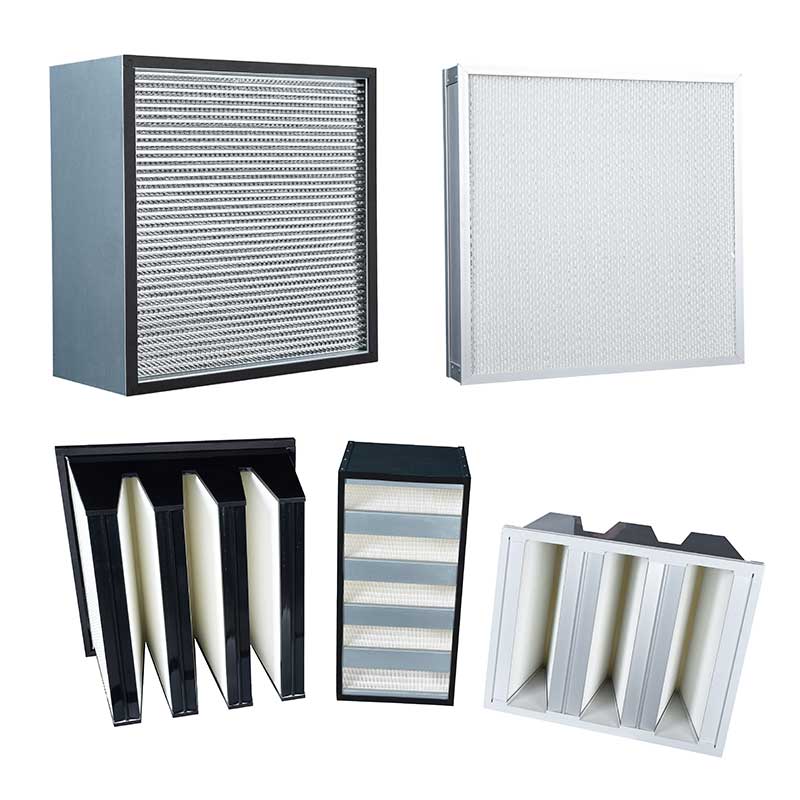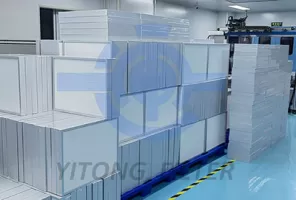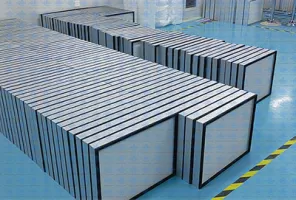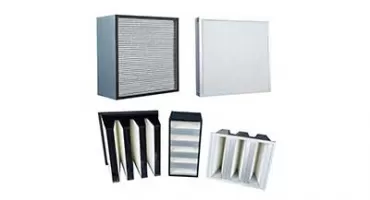 April 24, 2024
April 24, 2024
A HEPA (High-Efficiency Particulate Air) filter is an advanced air filtration system designed to remove microscopic airborne particles from the air. These filters are widely used in various applications, including residential and commercial buildings, hospitals, cleanrooms, and industrial facilities, to improve indoor air quality and protect against harmful pollutants.

The Science Behind HEPA Filters
HEPA filters are constructed with a dense network of fibers, typically made of glass or synthetic materials. These fibers are arranged in a specific pattern that creates a labyrinth-like structure, trapping particles as air passes through the filter. The fibers are designed to capture particles as small as 0.3 microns in diameter with an efficiency rate of 99.97% or higher.
The filtration process in a HEPA filter involves three primary mechanisms:
Inertial Impaction: Larger particles, due to their momentum, are unable to follow the air stream as it bends around the filter fibers, causing them to collide with and adhere to the fibers.
Interception: Smaller particles that come within one radius of a fiber can be intercepted and captured by the fiber.
Diffusion: The smallest particles, which are influenced by Brownian motion (the random movement of microscopic particles suspended in a fluid), collide with and adhere to the filter fibers as they diffuse through the filter media.
Applications and Benefits
HEPA filters are essential in various settings where clean air is crucial, such as:
Healthcare Facilities: HEPA filters are used in operating rooms, isolation rooms, and other critical areas to prevent the spread of airborne pathogens and maintain a sterile environment.
Cleanrooms: Industries like pharmaceuticals, electronics, and aerospace rely on cleanrooms with HEPA filtration to control contamination and ensure product quality.
Residential and Commercial Buildings: HEPA filters are incorporated into HVAC systems and air purifiers to improve indoor air quality by removing allergens, dust, and other pollutants.
Industrial Facilities: HEPA filters are employed in manufacturing processes that require strict control of airborne particulates to maintain product integrity and worker safety.
The benefits of using HEPA filters include:
Improved air quality and reduced exposure to airborne contaminants
Enhanced protection for individuals with respiratory conditions or allergies
Increased efficiency and productivity in cleanroom environments
Compliance with regulatory standards and guidelines for air quality
Maintenance and Replacement
While HEPA filters are highly effective, they require regular maintenance and replacement to ensure optimal performance. As the filter accumulates particles over time, the airflow resistance increases, reducing the filter's efficiency. Manufacturers typically provide guidelines for filter replacement based on usage and environmental conditions.
In conclusion, HEPA filters are an essential technology for maintaining clean and healthy indoor air environments across various industries and settings. Their ability to capture microscopic particles with exceptional efficiency makes them invaluable in protecting human health and ensuring product quality.
 Sep. 03, 2024
Understanding the Differences Between True HEPA and HEPA 13 Filters
Sep. 03, 2024
Understanding the Differences Between True HEPA and HEPA 13 Filters
 Apr. 29, 2024
What are the key points in selecting a HEPA filter?
Apr. 29, 2024
What are the key points in selecting a HEPA filter?
 Jun. 30, 2023
How to Choose an High Efficient Air Filter Correctly?
Jun. 30, 2023
How to Choose an High Efficient Air Filter Correctly?

